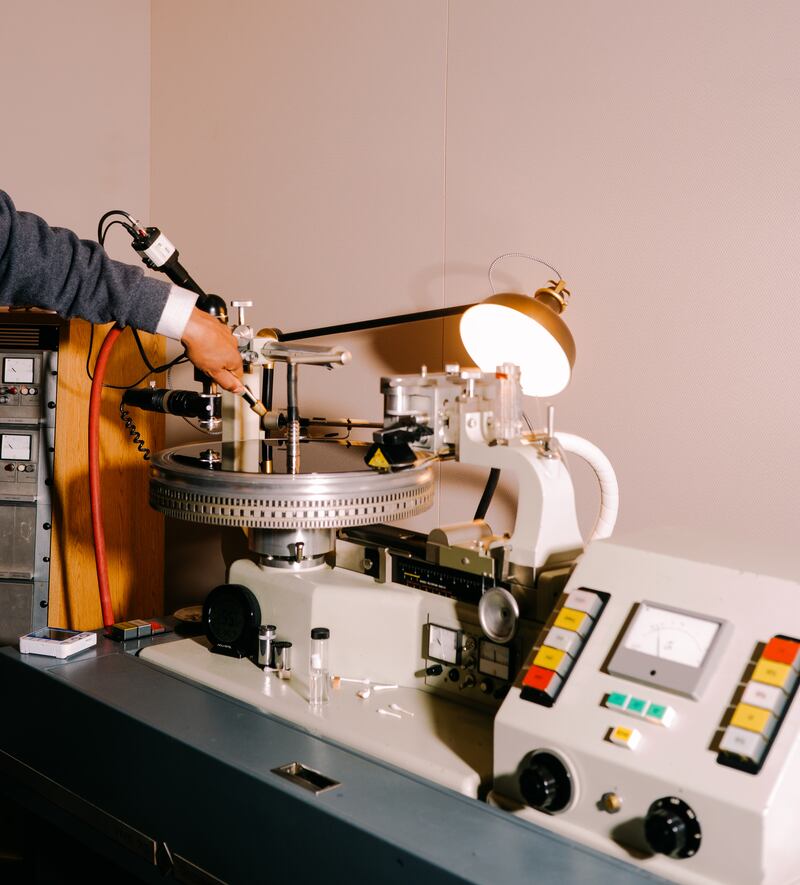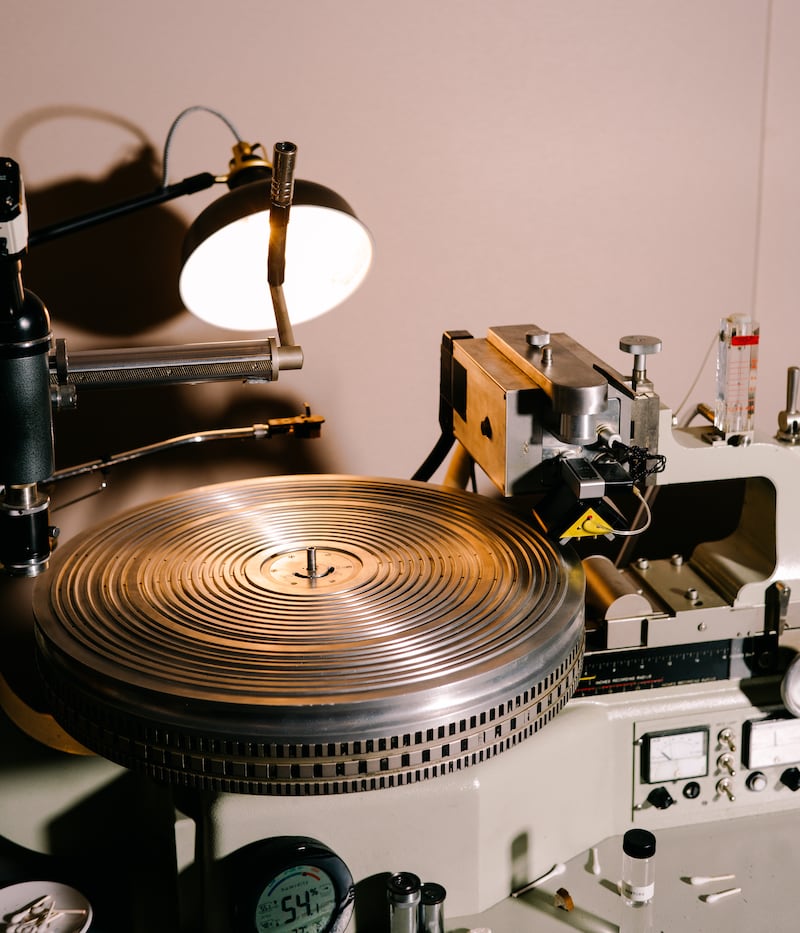Portland’s vinyl scene is on point, devastating global pandemic be damned. Most of the city’s marquee record stores have managed to weather the worst of COVID-19, despite reduced hours and the temporary pivot to mail order or curbside pickup. Some of this can be attributed to the rising popularity of vinyl.
It once seemed a bit like dewy-eyed, music-nerd hype, but “the vinyl revolution” has become a very real, quantifiable phenomenon. At the beginning of the year, the Recording Industry Association of America reported that vinyl sales increased by 29.2% in 2020. (That’s gross profit, not units sold—an important and often-overlooked distinction.)
“Business has actually been pretty good,” says Terry Currier, owner of Music Millennium and the Portland music scene’s preeminent man about town—he also coined the “Keep Portland Weird” slogan as a riff on the similar slogan of Austin, Texas.
“A lot of people, they didn’t have the opportunity to entertain themselves by going out to live shows, to the movies, and restaurants, Currier says. “We saw a lot of people come into [Music Millennium] and get into vinyl. Some of the people had not even been in before. We saw families where 12-year-old kids were coming in and getting their first piece of vinyl. And that didn’t just happen here, it happened across the country.”

The vinyl boom has been a boon for the consumer, but it’s starting to weigh heavily on manufacturing. The unprecedented demand for vinyl in 2020 coincided with a number of disasters that tore through the vinyl production industry.
Rainbow, one of the country’s largest record plants, closed at the end of 2019. Apollo Masters Corp., one of two facilities on the planet that provided plants with the lacquer discs needed for vinyl production, was destroyed in a massive fire at the beginning of last year.
When COVID hit, social distancing guidelines meant that plants had to operate at reduced capacity. And in the middle of last year, a container ship transporting the actual material compound used to make vinyl records was caught in a storm at sea, resulting in worldwide supply shortages.
“If you wanted colored vinyl, you had to wait an extra six months while they made more [vinyl compound] in Thailand and shipped it over,” says Adam Gonsalves of Portland’s Telegraph Mastering. “And then there’s increased consumer demand, which is kind of pushing from the back of the line. It’s a perfect storm—it’s not even a shitstorm, it’s a shit hurricane.”
There is also the narrative, largely propagated across music Twitter’s hall of mirrors, that major labels or artists with industry clout can jump ahead in line, or strong-arm vinyl manufacturers into prioritizing Rumours and Abbey Road reissues sold at Urban Outfitters over independent releases. That isn’t quite accurate, although sometimes the scope and quantity of major-label orders demands more attention and manufacturing resources.
Gonsalves points to a notoriously gaudy vinyl soundtrack for the 2013 film remake of The Great Gatsby as one example. “Some of the discs were actually metal,” he says. “That release was so disruptive because it was all sent to all of the plating places at once. Everybody was just working on the fucking Great Gatsby soundtrack. But once that got cleared, and once that goofy soundtrack got out there, everybody’s life got more or less back to normal.”
Amy Dragon, another mastering engineer who works at Telegraph, doesn’t get the impression that major labels are enjoying any special privileges right now. “They’ve been scrambling almost as much as self-releasing, independent artists,” she says. “In some ways even more so because there’s more pressure on them to release records by their higher-profile artists.”

Mark Rainey, CEO and co-founder of Cascade Record Pressing in Milwaukie, confirms this and goes a step further than most: He has always prioritized indie and local clients over the majors. The paucity of manufacturing facilities willing to take on new projects and clients has led at least one major to try and move an order to Cascade, but Rainey doesn’t seem too interested.
“It certainly remains a part of our mission and part of our identity to be a resource to local artists,” he says.
Rainey seems to have limited sympathy for these bigger clients who, he suggests, are responsible for the lack of vinyl production resources in the first place. “A big part of what created the conditions for the demand for new plants were the major labels coming back into the plants after, you know, not really doing much vinyl after many years, and sort of just coming in and displacing the customers that had kept the format alive. We’re not anti-major label, per se. We’re vinyl fans and we want to take care of our people, so to speak. The people who never abandoned the format to begin with.”
And the major labels’ revived interest in vinyl won’t do them any good if they can’t get record plants they once ignored to return their phone calls, Rainey says. “Last week, one of the biggest majors was calling me in the office, on my cellphone, and emailing me about trying to find capacity for the third quarter of next year,” he says. “I have yet to get back to them. I’m probably not going to.”
In light of the chaos surrounding vinyl manufacturing, another narrative has infiltrated the discourse: that we are on the brink of a “CD revival.” In terms of units, it’s true that CDs still outsold vinyl by about 10 million in 2020, according to RIAA data. Discogs also reports a growing used market for all physical media across the board, from records to CDs and cassettes.
Anecdotally, Currier reports seeing more young people walk out of Music Millennium with piles of used CDs. They’re cheap to make and buy, and Currier anticipates the format acting as a stopgap until the vinyl manufacturing world gets itself under control. But sources WW has spoken to mostly agree that chatter about a CD revival is premature at best, and specious at worst.
Telegraph has gotten less CD work this year than in years prior—a notable statistic that suggests indie labels and artists probably aren’t banking on the format’s purported comeback.
“The fundamentals of larger amounts of people being into vinyl are still there,” Gonsalves says. “And the fundamental frustrations that people have had with CDs are still there, too. I was just talking with a local label about this, and the label head was laughing. She said, ‘Yeah, I can make more CDs. They can get here faster, and then no one can buy them.’”
